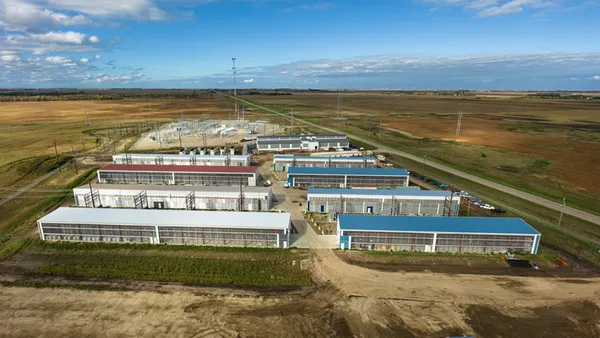Dive Brief:
- The U.S. Conference of Mayors (USCM) on Monday approved a resolution supporting a 100% renewable energy goal by 2035, and launched the Ready for 100 campaign to support the utilization of more clean power.
- The group of more than 250 U.S. mayors also passed resolutions to support vehicle electrification, energy efficiency grants and city-driven plans to reverse climate change. The resolutions are symbolic and represent statements of intent for city planning and work with federal and state governments.
- Interest in renewables is already running high in cities: A joint survey by USCM and the Center for Climate and Energy Solutions found almost 70% of responding cities already generate or purchase some clean energy, more than 20% are considering the option, and more than 60% are buying low-emissions vehicles for fleets.
Dive Insight:
The United States has withdrawn from the United Nations climate accord, but the U.S. Conference of Mayors believes its members can meet or exceed the national commitment, highlighting the local level at which clean energy policies must actually be enacted.
Yesterday at the USCM's conference in Florida, leaders from more than 250 cities voted in support of a resolution to move toward 100% renewable energy by 2035. Though symbolic, the mayors framed it and other environmental measures as statements of intent.
“By approving this historic measure, we are showing the world that cities and mayors can and will lead the transition away from fossil fuels to 100% clean, renewable energy,” Columbia, S.C., Mayor Steve Benjamin (D) said in a statement.
According to analysis by Sierra Club, if cities belonging to the USCM moved to 100% clean energy, "it would reduce electric sector carbon emissions by more than that of the five worst carbon polluting U.S. states combined."
If the 100% energy targets were achieved by 2025, the environmental group said the total electric sector carbon pollution reductions would "fill anywhere from 87% to 110% of the remaining reductions the United States would need to achieve in order to meet the goals of the Paris Agreement."
Those are steep goals unlikely to be achieved by 2025, but the resolution shows how governments at different levels are redoubling efforts on climate change, particularly in the wake of President Trump's decision to leave the Paris accord.
About three dozen U.S. cities have already committed to transition to 100% renewable energy, Sierra Club noted.
Earlier this month, a dozen states and Puerto Rico formed the U.S. Climate Alliance and committed to reducing emissions 26% or 28% from 2005 levels, while meeting or exceeding the targets of the Obama administration's Clean Power Plan.
The states, led by Washington, New York and California, committed to upholding their end of the United Nations Paris climate accord.
Trump argued that the the Paris agreement is a "bad deal for Americans" that "disadvantages the United States at the exclusive advantage of other countries." The accord was signed by President Obama and aims to limit global warming to 2°C this century, translating into an 80% economywide decarbonization for the U.S. by 2050.
But green energy supporters say that in addition to cleaner air and water, the shift can also fuel jobs growth. San Diego Mayor Kevin Faulconer said his city is shifting to clean energy "not only because it supports clean air and water, but because it supports our 21st century economy."















